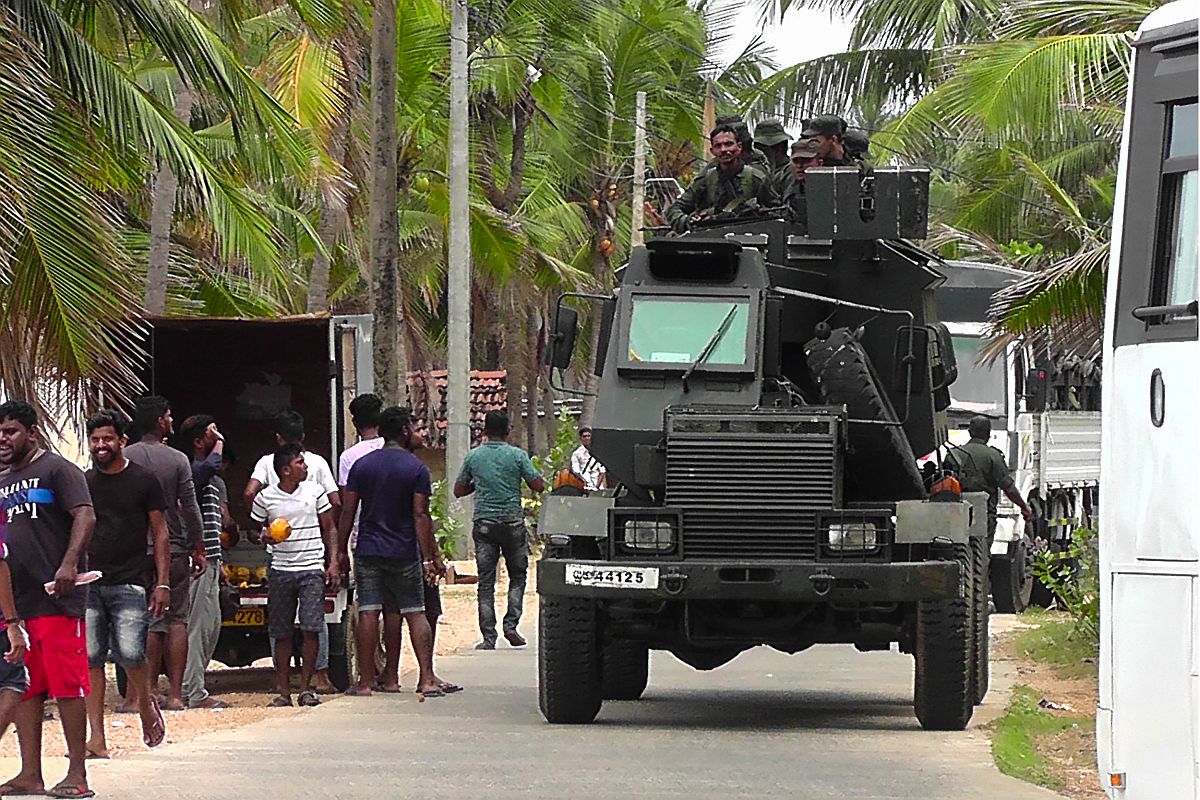Sri Lankan intelligence has received information on an attack targeting Buddhist temples by the National Thowheed Jamaath extremist group, using female bombers, the media reported on Monday.
Intelligence officers have found white pairs of skirts and blouses from the safe house which was raided on Friday night in Sainthamaradu area, 364 km from Colombo, reports the Daily Mirror.
Advertisement
On March 29, 29 Muslim women had spent 29,000 SL rupees to purchase nine sets of such clothing from a textile shop in Giriulla, the officers said.
So far, five sets of the white clothing had been found from the house and the intelligence services are continuing their efforts to find the remaining ones.
CCTV footage of the shop shows the women who purchased clothes from the shop.
Meanwhile, Sri Lanka has issued a Presidential decree banning all forms of face covers including Islamic garments such as burqa.
Sri Lankan President Maithripala Sirisena approved the call for a ban on the face covering under an emergency law.
The Friday night raid was part of a nationwide hunt for the perpetrators of the Easter Sunday attacks that killed 253 people.
This comes as security officials according to a report in Reuters have warned that Islamist militants were planning more attacks, using a van and bombers disguised in military uniforms.
“There could be another wave of attacks,” the head of ministerial security division (MSD), a unit of the police, said in a letter to lawmakers and other security sections, according to the report.
In the Friday night raids on an ISIS hideout in the aftermath of the Easter attacks, fifteen people including six children were killed as three-cornered suicide bombers blew themselves up and others were shot dead.
The three men set off explosives, also killing three women and six children inside what was believed to a jihadist safe house near the eastern town of Kalmunai on Friday night.
Security forces have stepped up their searches for extremists after the ISIS group claimed responsibility for the suicide attacks on three churches and three luxury hotels, which killed least 253 people and wounded hundreds more.
The joint operation between the police and the army was carried out following a tip-off that those responsible were holed up in a built-up area of Kalmunai, 370 kilometres (230 miles) east of the capital.
The government has already admitted major intelligence lapses, although Prime Minister Ranil Wickremesinghe said he was unaware of any warnings ahead of the attacks, in a sign of the rift between him and President Maithripala Sirisena.
Friday’s clashes came hours after the security forces raided a nearby location where they believe Islamist radicals recorded a video pledge to ISIS leader Abu Bakr al-Baghdadi before carrying out the Easter bombings.
Police said they found an ISIS flag and uniforms similar to those worn by the eight fighters for the video before they launched the attacks. ISIS released the video two days after the attacks. They also found 150 sticks of gelignite, thousands of steel pellets and a drone camera.
Since the April 21 serial blasts, authorities in Sri Lanka have arrested a total of 106 suspects in multiple raids carried out across the country.
The Police are still in search for other members of the National Thowheeth Jamaath (NTJ), the local terror outfit and a splinter group of the Islamic State, which carried out the blasts in Sri Lanka.
(With agency inputs)









